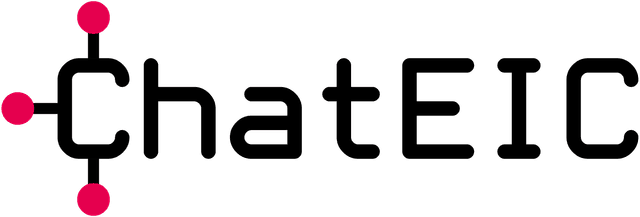
Helpful Resources for an EIC Accelerator Pitch Video (SME Instrument)
In 2021, the EIC Accelerator blended financing (formerly SME Instrument Phase 2, grant and equity financing) will include a video pitch as a new proposal document which is expected to place an additional burden on applying startups and Small- and Medium-Sized Enterprises (SME). While tips on choosing an appropriate video type (read: Types of Pitch Videos) and the scripting process (read: Scripting a Pitch Video) can be found elsewhere, this article will focus on the resources that can be used for the actual editing process.
While the European Innovation Council (EIC) will likely not provide sufficient material as part of the official proposal template or guidelines, professional writers and consultancies should have access to a variety of resources needed for video production such as video clips, background music, images and software. These will likely become indispensable since a hired consultant must be able to efficiently coordinate all aspects of the production (read: Remote Video Production Workflow).
1. Resources for Stock Music
Royalty-free music or music under the Creative Commons license is readily available for creators but their exact licencing conditions can vary greatly. Such variations come in the form of attributions, commercial use, regional restrictions or the type of project it is used for. Since the EIC Accelerator proposal is confidential and should only be viewed by the European Agency for SME's (EASME) evaluators and pitch interview jurors, there should generally be no problem in using copyrighted music but it could be a problem if the video finds its way online.
Since the company name will be directly linked to the video content, it would be best to only use non-copyrighted music or to pay for the use of a certain license. The advantage of this approach is also that the video can be shared more freely on social media or with a variety of investors who have shown interest in the project.
- Pixabay is a great resource for free music under the Creative Commons licence whereas commercial use is allowed and no attribution of the composer is required.
- SoundCloud and YouTube contain a variety of channels that do advertise royalty-free music but these are sometimes part of a complex licensing structure and are not entirely free. Still, its worth having a look since they contain a large number of different tracks.
- The FreeMusicArchive contains a multitude of different songs but care should be placed on their exact licencing conditions.
- CreativeCommons.Org has created a shortlist of sources for music under a creative commons license.
- Websites such as AudioJungle, ShutterStock or AdobeStock are premium services which offer high-quality music at a low price as a subscription or one-off purchase.
2. Resources for Stock Video
- PixaBay tops the list once again with its video archive where attribution and cost-free video clips can be found. Many of the items are of high-quality and will likely meet most short-video production needs.
- Pexels is similar to PixaBay and offers attribution-free stock videos for free.
- Videezy likewise offers free video footage but also includes premium content that can be purchased for a small price.
- AdobeStock and ShutterStock, once again, offer subscription or one-off purchases of stock footage with high quality. Since such libraries are highly curated, one can expect to find more customized footage on these platforms but most free alternatives are also presenting a competitive portfolio.
3. Resources for Stock Images
- Unsplash and PixaBay are great resources not only for pitch videos but also for grant proposal writing (read: Design Templates for Grant Writing). They offer cost- and attribution-free photos and designs for commercial use. From experience, Unsplash usually offers better content for certain keywords and the images tend to be higher in quality.
- Pexels offers a Freemium model for stock images wheres some can be used for free while others are behind a paywall but the costs are still very low.
- iStockPhoto, ShutterStock and AdobeStock offer high-quality and curated photo libraries for commercial use with a variety of pricing plans.
These tips are not only useful for European startups, professional writers, consultants and Small and Medium-Sized Enterprises (SME) but are generally recommended when writing a business plan or investor documents.
Deadlines: Post-Horizon 2020, the EIC Accelerator accepts Step 1 submissions now while the deadlines for the full applications (Step 2) under Horizon Europe are listed below. The Step 1 applications must be submitted weeks in advance of Step 2. The next EIC Accelerator cut-off for Step 2 (full proposal) can be found here. After Brexit, UK companies can still apply to the EIC Accelerator under Horizon Europe albeit with non-dilutive grant applications only - thereby excluding equity-financing. Switzerland has resumed its participation in Horizon Europe and is now eligible for the EIC Accelerator.
EIC Accelerator Step 1 Deadline 2025
Contact: You can reach out to us via this contact form to work with a professional consultant.
AI Grant Writer: ChatEIC is a fully automated EIC Accelerator grant proposal writer: Get it here.
EIC Accelerator: EIC Accelerator delivers flexible funding options including blended finance (€2.5M grant + €0.5M-€10M equity), grant-only (up to €2.5M), or equity-only arrangements for scale-up and market deployment of breakthrough innovations. The initiative targets SMEs, start-ups, and small mid-caps with up to 499 employees. Technology areas include Biotech, Engineering, Artificial Intelligence, Energy, Quantum, Aerospace, Advanced Materials, and Semiconductors. Get Started
EIC Pathfinder: EIC Pathfinder delivers up to €3 million for Open calls and up to €4 million for Challenge-based calls to support early-stage research and development with proof-of-principle validation. The initiative requires research consortia with a minimum of 3 partners from 3 different countries, including universities, research organizations, and SMEs. Primary technology focus areas include Health/Medical, Quantum Technologies, AI, Environmental/Energy, and Advanced Materials. Get Started
EIC Transition: EIC Transition delivers up to €2.5 million in funding to overcome the 'valley of death' gap between laboratory research and market deployment, emphasizing technology maturation and validation. The initiative supports single legal entities or small consortia of 2-5 partners including SMEs, start-ups, spin-offs, and research organizations. Key technology domains include Health/Medical Technologies, Green/Environmental Innovation, Digital/Microelectronics, Quantum Technologies, and AI/Robotics. Get Started
EIC STEP Scale-Up: EIC STEP Scale-Up delivers significant equity investments of €10-30 million for established deep-tech companies prepared for hyper-growth and large-scale expansion. The initiative targets SMEs or small mid-caps with up to 499 employees who have obtained pre-commitment from qualified investors. Primary focus areas include Digital & Deep Tech (Semiconductors, AI, Quantum), Clean Technologies for Net-Zero objectives, and Biotechnologies. Get Started
EIC Pre-Accelerator: EIC Pre-Accelerator represents a pilot initiative delivering €300,000-€500,000 in funding for early-stage deep-tech development and preparation for the EIC Accelerator program. This program is exclusively accessible to single SMEs or small mid-caps from 'Widening countries' to foster regional innovation development. The initiative encompasses deep-tech innovations across physical, biological, and digital domains. Get Started
EIC Advanced Innovation Challenges: EIC Advanced Innovation Challenges represents a new pilot initiative delivering €300,000 (Stage 1) and up to €2.5 million (Stage 2) for breakthrough deep-tech innovations through ARPA-style staged funding mechanisms with integrated demand-side engagement. This initiative targets single entities or small consortia (2-3 partners) including SMEs, start-ups, and research organizations. Primary focus areas include Physical AI for autonomous robotics applications and New Approach Methodologies (NAMs) for animal-free biomedical testing, with TRL 4 entry requirements and demonstrated end-user commitment. Get Started
Eureka Network: The Eureka Network delivers various international collaborative R&D initiatives such as Network Projects, Clusters, Eurostars, Globalstars, and Innowwide, providing funding from €50K to €6.75M per project based on the specific initiative. This network emphasizes market-driven innovation and deep-tech advancement across multiple technology sectors including ICT/Digital, Industrial/Manufacturing, Bio/Medical Technologies, Energy/Environment, Quantum, AI, and Circular Economy. Eligible participants include SMEs, large enterprises, research organizations, universities, and startups, with Eurostars particularly focused on R&D-performing SMEs. Get Started
Eurostars: Eurostars represents a joint EU-Eureka initiative delivering €50K-€500K for international R&D collaboration specifically led by SMEs. The program adopts a bottom-up approach, accepting projects from all technology fields without predefined thematic restrictions. R&D-performing SMEs must lead the consortium and demonstrate significant R&D activities. Get Started
Innovation Partnership: Innovation Partnership enables collaborative innovation between public and private sectors with typical funding of €1-5 million per project. The initiative supports cross-sectoral strategic technologies through public-private partnerships and consortia. Projects concentrate on addressing societal challenges through collaborative innovation approaches. Get Started
Innovation Fund: The EU Innovation Fund delivers substantial funding of €7.5 million to €300 million for large-scale demonstration of innovative low-carbon technologies. The initiative targets clean energy, carbon capture, renewable energy, and energy storage technologies to accelerate the transition to a low-carbon economy. Eligible participants include large companies, consortia, and public entities capable of implementing large-scale demonstration projects. Get Started
Innovate UK: Innovate UK delivers various programs with funding ranging from £25K to £10M depending on the specific initiative, supporting business-led innovation, collaborative R&D, and knowledge transfer. The organization funds projects across all sectors with particular emphasis on emerging technologies and supports UK-based businesses, research organizations, and universities. Programs are designed to drive economic growth through innovation and technology commercialization. Get Started
Industrial Partnership: Industrial Partnership delivers €2-10 million in funding for industrial research and innovation partnerships focusing on manufacturing, industrial technologies, and digital transformation. The initiative supports industrial consortia and research organizations in developing collaborative solutions for industrial challenges. Projects aim to strengthen European industrial competitiveness through strategic partnerships. Get Started
LIFE Programme: The LIFE Programme delivers €1-10 million in funding for environmental protection, climate action, and nature conservation projects across the European Union. The initiative supports environmental technologies, climate adaptation strategies, and biodiversity conservation initiatives. Eligible participants include public authorities, private companies, NGOs, and research institutions working on environmental and climate challenges. Get Started
Neotec: Neotec represents a Spanish initiative delivering €250K-€1M in funding for technology-based business creation and development, supporting the growth of innovative Spanish SMEs and start-ups. The program covers all technology sectors and aims to strengthen Spain's technology ecosystem. Funding is specifically targeted at Spanish technology-based SMEs and start-ups to enhance their competitiveness and market presence. Get Started
Thematic Priorities: EU Thematic Priorities encompass various programs aligned with EU strategic priorities including green transition, digital transformation, health, and security initiatives. Funding amounts vary based on the specific program and call requirements, with projects designed to address key European challenges. Applicant eligibility varies by specific program and call, with different requirements for different thematic areas. Get Started
Any more questions? View the Frequently Asked Questions (FAQ) section.
Want to see all articles? They can be found here.
For Updates: Join this Newsletter!
